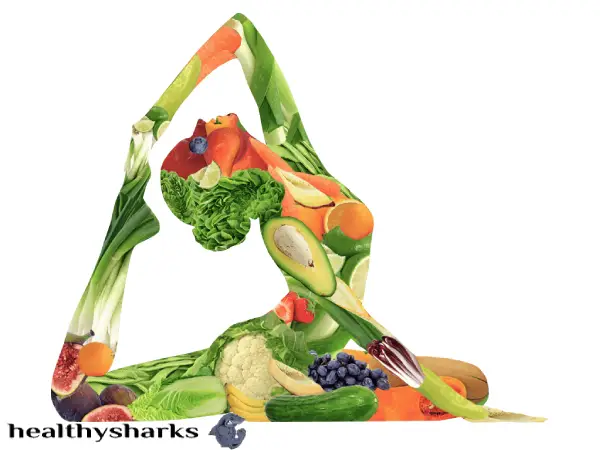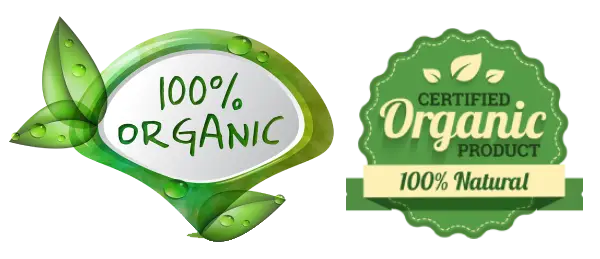Organic foods
There are organic food and vegetable sections in almost every store, and when you look at them, you find them in the same shape and quality as the non-organic product, but at a higher cost, usually at least 20%, for example, when you look at an organic and non-organic apple, you find that they are both the same color, luster, and size, This causes confusion and frequent questions among people, such as: Is organic food worth the hype around, or is it just a marketing ploy? Should I buy everything that is organic and stop buying everything that is not organic? Is organic food richer in beneficial nutrients? Is it worth paying more money for it?
You will learn the answers to these questions, and how to buy and choose your food smartly, financially, and healthily at the same time.
What is organic food?
Organic food is food that fulfills all of the following conditions during its cultivation, growth, processing, and even reaching the store: Not exposed to industrial pesticides, chemical fertilizers, chemical or hormonal additives, radiation, or sewage water. Accordingly, organic crops are exposed only to types of pesticides and natural and non-industrial fertilizers, and organic animal products guarantee the consumer that the animal eats 100% natural food, has not been exposed to any injections or hormonal boosters, and was not given any antibiotics during its upbringing.
Is organic food healthier or safer than non-organic?
The goal of organic foods is to protect the environment from chemicals, and with regard to any benefits to human health, all of them are not scientifically confirmed so far. They are based on studies and research that indicate potential benefits and prevention of potential damage, but they are not enough to confirm these benefits conclusively, and this means:
- Both organic and inorganic food contains the same value and essential nutrients: For example, both organic and inorganic apples contain the same value of vitamins and fiber, both are free of fat, salt, and cholesterol, and neither of them has additional nutrients that distinguish it from the other.
- On the other hand, there are increasing studies and research, although they are not enough, that says that “some” types of organic food have higher benefits and protection from some risks associated with their inorganic counterpart, namely:
- Organic foods may contain a higher amount of antioxidants than their inorganic counterparts.
- Organic meats may contain more omega-3s than non-organic meats.
- Less amount of toxic elements: specifically cadmium, which is a toxic substance naturally found in the soil and absorbed by plants. Studies looking at the benefits of organic food found that cadmium was found in lower concentrations in organic grains compared to inorganic grains, while they did not find a significant difference in its concentration. Between organic and inorganic vegetables and fruits.
- Less amount of pesticides on the surface and peels of fruits and vegetables.
- Organic meat is less susceptible to bacterial growth because non-organic meat has been exposed to antibiotics and therefore has a higher chance of resistance to bacteria.
Understand the label on the product
Some of the labels placed on food may be confusing and confuse the buyer with the aim of increasing profit. To buy the organic product, it must be explicitly written that it is organic. No company can write this phrase on its product without the approval, supervision, and guarantee of achieving The terms and conditions are set by the Food and Drug Administration, and you should also know that here are attributable to the membership of the product, which are:
- 100% Organic: This means that the product contains 100% organic ingredients, and the manufacturer is allowed to put the word “Organic” without specifying the percentage on the product.
- Organic 95%: This means that 95% of the ingredients of the product are organic, and the manufacturer is allowed to put the word "organic" without specifying the percentage on the product.
- Made with organic ingredients: This means that at least 70% of the product's ingredients are organic, and here the factory company is not allowed to put the word "organic" on the product, but it must literally write Made with organic ingredients.
Terms that do not imply that the product is organic:
- Has not been exposed to pesticides or chemical fertilizers, or with regard to meat (raised on natural fodder or raised on farms): Although the manufacturer may be honest in what you write, these statements are not subject to the control of the Food and Drug Administration, as is the case with the phrase (Organic), and therefore its credibility depends on the credibility of the producing company.
- Natural product (Natural or 100% Natural): The word "natural" does not mean "organic", you find it sometimes on products such as cereals, biscuits, etc., and it means that the product during its manufacture was not exposed to colorings, preservatives, and artificial flavorings, and it does not mean that the grains from which the biscuits were made For example, organic. As for organic, it means, as we said, that the method of cultivating this natural product, in addition to the method of manufacturing it, was all made with natural materials.
How to choose organic products smartly?
Organic products to buy
1- Poultry Organic poultry meat was raised on food that is free of chemical fertilizers and chemical pesticides, and it was not exposed to antibiotics, which makes it less likely to grow antibiotic-resistant bacteria. Inorganic, we advise you to remove the skin and fat from it. In these areas, the pesticides are concentrated in the food of the poultry.
2- Meat from cows and sheep Studies show that organ meats contain higher amounts of omega-3s, in addition to the fact that cows and sheep are often injected with sex hormones to grow up faster, and some studies say that this stimulates early puberty than female children who eat meat. Inorganic, while other studies deny the existence of any harm to the health of children from these hormones.
3- Microwave Popcorn The chemicals in which microwave popcorn is made are harmful to health, and even the processed butter added to it may lead to breathing problems, in the long run, so choose organic microwave popcorn or make popcorn at home in the usual way in a pot on the fire.
Products to buy are non-organic
Products to buy locally
- Lettuce and other leafy vegetables: This type of vegetable usually contains large amounts of pesticides, because it is more susceptible to them due to its lack of peels that protect it, and by transferring it from one country to another, even if it is organically grown in the country of origin, you cannot guarantee that it has not been exposed to any chemicals The company that supplies the product, especially that transportation exposes vegetables to difficult conditions of heat and humidity, so buying these products fresh from the land of your country is the best option.
- Strawberries: Strawberries are one of the most susceptible fruits to rotting and rapid deterioration, so buy them from a local source and do not care much if they are organic or non-organic.
- Potatoes and other root vegetables: Root vegetables, if not exposed to chemicals, will absorb in large quantities from the soil, so it is best to choose local products, taking care to wash them well by rubbing their peels under running water before eating them.
- Fruits and vegetables with thick peels: such as avocados, the peels of these fruits are the ones on which pesticides can be found. Washing them well and then peeling them since they are not eaten protects you from pesticides.
- Apples, apricots, and other vegetables and fruits with thin skins: Also, the only difference between organic and inorganic products here is the presence of pesticides in a higher quantity on their peels. To get rid of them, buy these products from the local production of your country, and wish them well by rubbing them underwater, and there is no need to use soap with water.

















0 comments:
Post a Comment